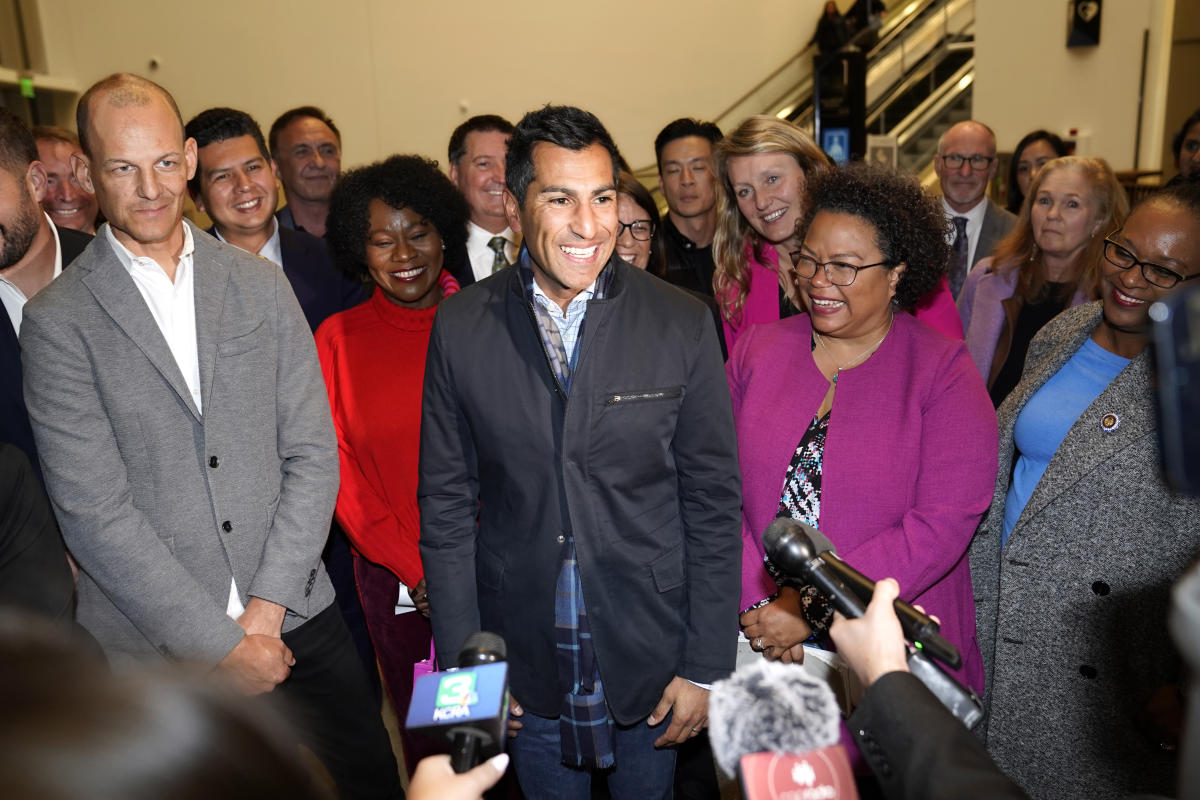Rural interests, particularly agriculture but also forestry and local government, see an opening to finally make their mark on nation-leading policies, especially on the environment.
“The reality is that most of California’s rural and agricultural communities have long been marginalized in Sacramento, so just having a friendly ear in a position of influence makes us hopeful,” said Alex Biering, a lobbyist for the California Farm Bureau.
Sen. Mike McGuire’s sprawling North Coast district encompasses some of the state’s most famous redwood forests, salmon fisheries and Sonoma County wineries. Speaker Robert Rivas represents a Central Coast region known as the salad bowl of America and grew up in farmworker housing. They’re both a far cry from their immediate predecessors, Sen. Toni Atkins of San Diego and Assemblymember Anthony Rendon of south-central Los Angeles.
For Chris Lopez, the current chair of the Rural County Representatives of California, which includes 40 of California’s 58 counties, the representation alone is powerful.
“When Robert was sworn in as speaker, having a mariachi on that floor playing music spoke to my heart,” said Lopez, who has close ties with the speaker because both came up through San Benito County politics. “It wasn’t just about having a Latino, but having a Latino who grew up rural in farmworker housing.”
Lopez is hoping those good vibes will translate into specific budget and policy wins.
One example: RCRC has long sought an exemption from CA SB1383 (15R), former Sen. Ricardo Lara‘s 2016 law requiring counties to reduce the amount of organic waste that goes into landfills and decomposes into methane, a potent global warming gas. Lopez argues that remote areas don’t have enough access to composting facilities and is sponsoring Assemblymember Jim Wood’s CA AB2902 (23R), which would indefinitely extend the exemption for rural jurisdictions.
The law is one instance of how cities’ grip on political power has made some of California’s most iconic climate policies not work as well for rural areas, Lopez said.
“Our communities need longer runways, they need a little bit more assistance on the technical advisory side,” he said. “I know we have got folks there now who understand that.”
The last time both leaders hailed from rural districts was in 1969, when Democrat Hugh Burns of Fresno County led the Senate and Republican Bob Monagan of San Joaquin County led the Assembly, according to Alex Vassar, California State Library communications manager. The most recent rural Assembly speaker was Cruz Bustamante, a moderate Fresno Democrat who led the Assembly from 1996 to 1998 before becoming lieutenant governor.
Urbanites’ dominance in California state politics is unsurprising given the concentration of people in Los Angeles, San Diego and San Francisco and the tendency of rural voters to elect Republicans, who have little chance of succeeding on the statewide stage.
But McGuire and Rivas, both 44, are young and ambitious. They’re taking the helm of the Legislature in a down budget year, which will make it harder to please their caucuses — but they’re careful to emphasize they’re representing everyone, including their urban counterparts.
“No matter if you live in Eureka or Encino, the priorities are similar,” McGuire said in a statement. “While I’ll always have country roots, I’m going to fight like hell to lift up every Californian, no matter if you live in the big city or a one traffic stop light town.”
McGuire’s comments come after Assemblymember Isaac Bryan before his ouster as majority leader referred to himself as “Los Angeles’ voice,” while noting to an LA business group that Rivas is “not from here.”
McGuire has made wildfire preparedness a priority, and has outlined the most detailed plan of any lawmaker to right the state’s troubled property insurance industry after catastrophic losses, some to fires in his district. (He has an open campaign account for an insurance commissioner run in 2026.)
Rivas, for his part, is one of the Legislature’s biggest champions of the potential climate benefits of landscapes like farms and forests to absorb carbon. He co-authored a bill in 2022 requiring the state to set first-in-the-nation emissions targets for natural and working lands.
Laurie Wayburn, the president of the conservation nonprofit Pacific Forest Trust, is hoping that track record translates into additional policy and money — especially in the climate bond that’s vying for the November ballot.
“There is really the opportunity to shift the emphasis in our climate investments to really reflect the value of natural and working lands,” said Wayburn.
Rivas named climate resilience as one of his top priorities at a conference last week put on by the Climate Center, giving land management a particular shoutout. He also noted the need for climate advocates to embrace the state’s diverse communities if they want to keep notching political wins.
“Climate issues and impacts in San Francisco are much different than the climate emissions and impacts of Bakersfield in the Central Valley,” Rivas said. “Trying to organize regionally and having a very strategic approach, that’s why I want to always preach and encourage collaboration.”
This story first appeared in POLITICO Pro’s California Pro newsletter. Sign up for POLITICO Pro.
